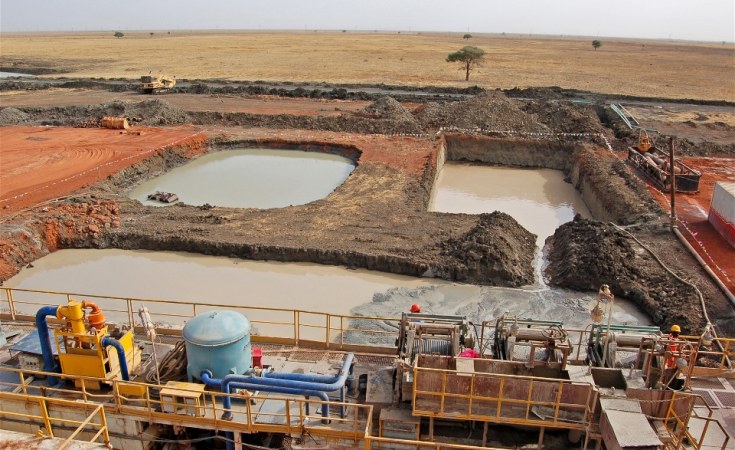West Kordofan — Engineers in the oil fields of West Kordofan have confirmed "large-scale sabotage operations" in the Dafra field, near the Heglig oil field, situated on the border between Sudan and South Sudan two weeks ago.
An engineer explained to Radio Dabanga that the Dafra field is a pumping station for El Neem oil field, which stopped production several months ago, due to sabotage by local gunmen. The company evacuated its employees before the events.
The sabotage affected the fields of Dafra, El Neem, and Kanar, while the fields of Heglig and Bamboo continue to operate despite the security conditions, with dozens of wells out of service due to the theft of electrical transformer oils and copper cables and the destruction of well operating controllers, he said.
According to Sudan War Monitor, a major rupture has occurred in a pipeline that carries crude oil from South Sudan through Sudanese territory to Port Sudan, prompting the Sudanese oil minister to inform Chinese and Malaysian production partners that Sudan cannot meet its obligations to deliver crude oil through the pipeline system.
The rupture occurred due to a clog in an underground pipeline in territory controlled by the Rapid Support Forces (RSF) in northern White Nile State, at a village about 20 km south of the town of El Giteina, near the frontline with the Sudan Armed Forces.
'Military operations'
Due to "military operations" in the area, pump stations operated by the state-owned Bashayer Pipeline Company (BAPCO) ran out of diesel, causing a "gelling incident"*--a clog, in other words--that led to a "major rupture," according to a letter dated March 16 by Sudan's Minister of Energy and Petroleum, Mohieldin Naim Mohamed Said.
Most recently, Sudan's Minister of Energy and Oil, Muhyiddin Naeem Saeed, confirmed that the reconstruction of the oil infrastructure destroyed during the current war will cost at least $5 billion.
Saeed told the official Sudan News Agency (SUNA) that about 210,000 barrels of crude oil has been lost a result of the sabotage of the storage facility at the Khartoum refinery, which used to provide about 40 per cent of Sudan's needs. The decline in oil production throughout this period, has led to the loss of about seven million barrels of crude oil.
As reported by Radio Dabanga in December, the war has disrupted Sudan's oil production and transportation, leading to a reliance on importing all oil derivatives from abroad. The private sector, struggling to obtain foreign currencies at official rates, resorts to the parallel market, escalating costs.
In November 2023, Sudan warring parties exchanged accusations over damage to El Jeili oil refinery. The Rapid Support Forces (RSF) accused the Sudanese Air Force of bombing El Jeili oil refinery north of Khartoum, however the Sudanese Armed Forces (SAF) contradicted the statement and said that fire broke out after an RSF fuel tanker exploded at the refinery.
Last year, Radio Dabanga reported that armed men launched rocket and grenade attacks on the field, as well as intimidating workers with leaflets reading "leave with your family before you perish."
*Sudan produces mostly Nile blend, a paraffiniccrude oil, and also the less valuable Dar blend. These crude oils, differ in density, specific gravity, viscosity and pour point, and chemical content.


